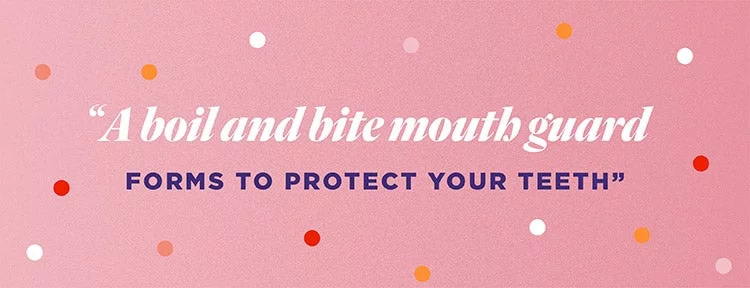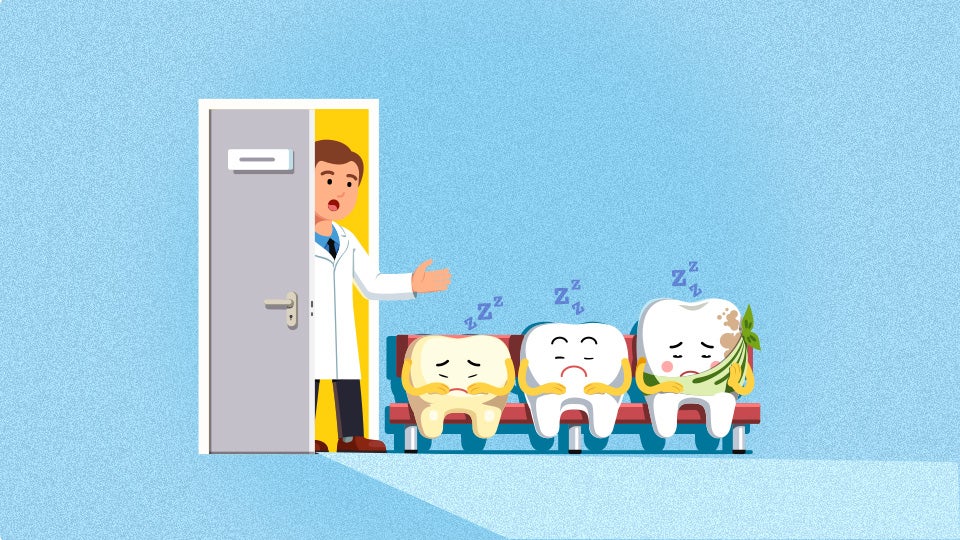Keeping your teeth healthy involves more than just brushing, flossing, and regular checkups. Sometimes, protecting them with a mouthguard is necessary. This is especially true for kids.
What is a Mouth Guard?
A mouth guard, also referred to as a mouth protector, helps to soften physical impacts on the face. Wearing a mouth guard while playing sports minimizes the risk of breaking or chipping teeth. It also prevents injuries to the lips, tongue, jaw, and face.
What are the Benefits of a Mouth Guard?
Mouth Guard Types
Custom Made
Boil and Bite
Stock Brands

Can a Child Wear a Mouth Guard?
There are plenty of reasons for a child to wear a mouth guard. Your dentist might recommend a children's mouth guard for grinding teeth as a way of dealing with bruxism in kids.
Mouth Guards & Sports
Whether or not your child needs a mouthguard depends on the type of sport they play. Certain sports, like football, hockey, and lacrosse, require a mouthguard. Even if the rules don’t require a mouthguard, it certainly can’t hurt for your child to wear one. Here are some good rules of thumb for when to wear a mouthguard while playing sports:
- Ball and stick sports: baseball, softball
- Hand-to-hand sports: boxing and martial arts
- Field sports: rugby and soccer
- Competitive riding: cycling, horseback riding, and skateboarding
- Outdoor activities: biking, rollerblading, skiing, and waterskiing
Mouth Guards & Sleeping
Sleep disorders prevent children and adults from getting the necessary amount of sleep required by their bodies. In some cases, such as with sleep apnea, a mouth guard for sleeping can help.
Wearing a sleep apnea mouth guard on the lower arch repositions the tongue and jaw to keep the airway open. A mouth guard can help with sleep apnea, snoring, and nighttime bruxism.
Why Do Kids Grind Their Teeth?
Teeth grinding in children and adults is referred to as bruxism. It affects approximately 30 to 40 million people in the United States.
Bruxism in children has multiple causes:
- Misaligned or overcrowded teeth can interfere with upper and lower teeth
- Internal causes such as earache, allergies, dehydration, sleep disorders, and nutritional deficiencies
- Stress-inducing life situations such as school troubles, parents divorcing, changes to their environment, and the death of a loved one
Even babies can suffer from bruxism. The reason babies grind their teeth stems from teething. It is a response mechanism generated by the pain from teething.

How Often Should Your Child Wear a Mouth Guard?
How to Choose a Mouth Guard for Kids
Choosing a mouthguard for your child might seem like it can be a complicated process. Each mouth is different, so follow these tips to determine the correct children's mouth guard.
Safe Substances
Comfort Level
Cleanliness
Prevent Tears
Easy Speaking
Easy Breathing
Find a Dentist Near Me
Consult your dentist to discuss any questions about the best mouthguards for kids. You can also ask about kids and bruxism. Or, check out The Smile Generation to find a dentist near you for all your oral health needs. You can read patient reviews, peruse staff bios, and schedule an appointment online with a click of your mouse.
Find your trusted, local dentist today!
Sources
- American Dental Association. (n.d.). Mouthguards. Mouth Healthy. https://www.mouthhealthy.org/all-topics-a-z/mouthguards/
- Majeau, C. (2022, July 5). Best mouthguard for kids. The Sleep Judge. https://www.thesleepjudge.com/roundup/best-mouthguard-for-kids/
- Colgate. (2023). Mouthguards: Everything you need to know. Colgate. https://www.colgate.com/en-us/oral-health/selecting-dental-products/mouth-guards-everything-you-need-to-know#
- Colgate. (n.d.). Clenching teeth at night. Colgate. https://www.colgate.com/en-my/oral-health/bruxism/clenching-teeth-at-night-0113
- Colgate. (n.d.). Bruxism (teeth grinding). Colgate. https://www.colgate.com/en-my/oral-health/bruxism/bruxism-teeth-grinding
- Colgate. (n.d.). Bruxism: Signs and symptoms. Colgate. https://www.colgate.com/en-my/oral-health/bruxism/bruxism-signs-and-symptoms
- Marcin, A. (2016, January 19). Causes of and natural remedies for baby teeth grinding. Healthline. https://www.healthline.com/health/parenting/baby-teeth-grinding
Smile Generation blog articles are reviewed by a licensed dental professional before publishing. However, we present this information for educational purposes only with the intent to promote readers’ understanding of oral health and oral healthcare treatment options and technology. We do not intend for our blog content to substitute for professional dental care and clinical advice, diagnosis, or treatment planning provided by a licensed dental professional. Smile Generation always recommends seeking the advice of a dentist, physician, or other licensed healthcare professional for a dental or medical condition or treatment.








